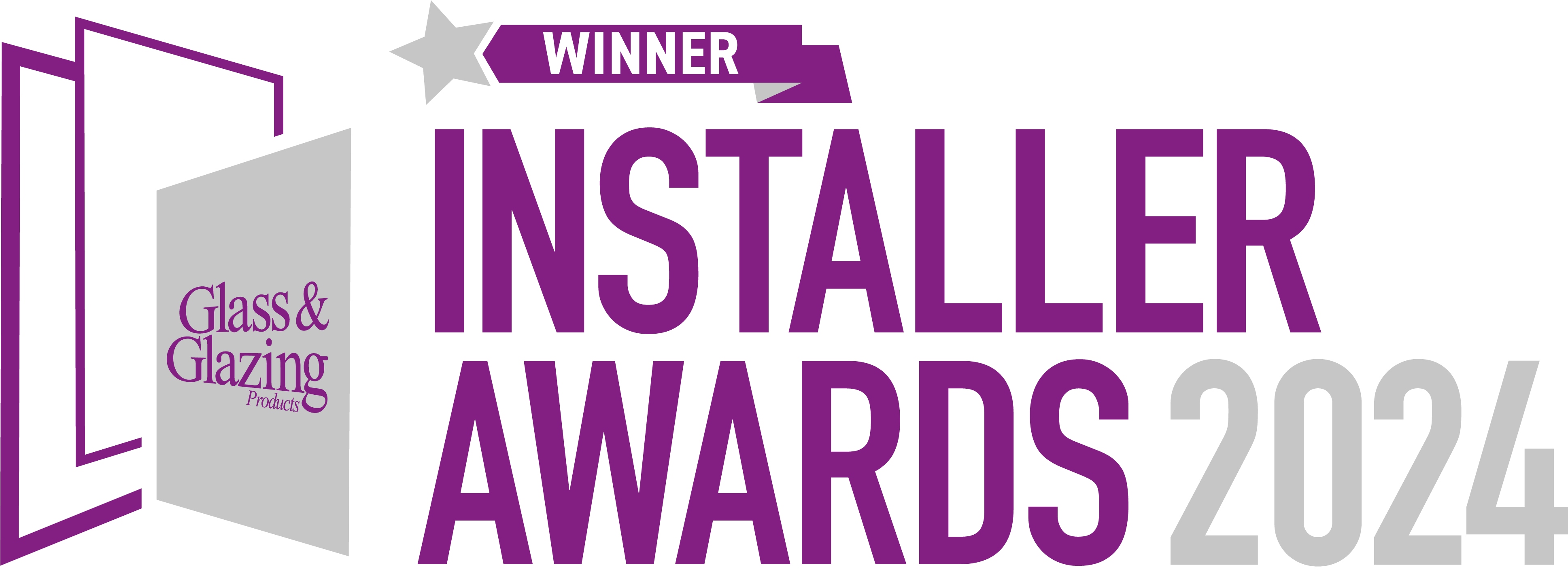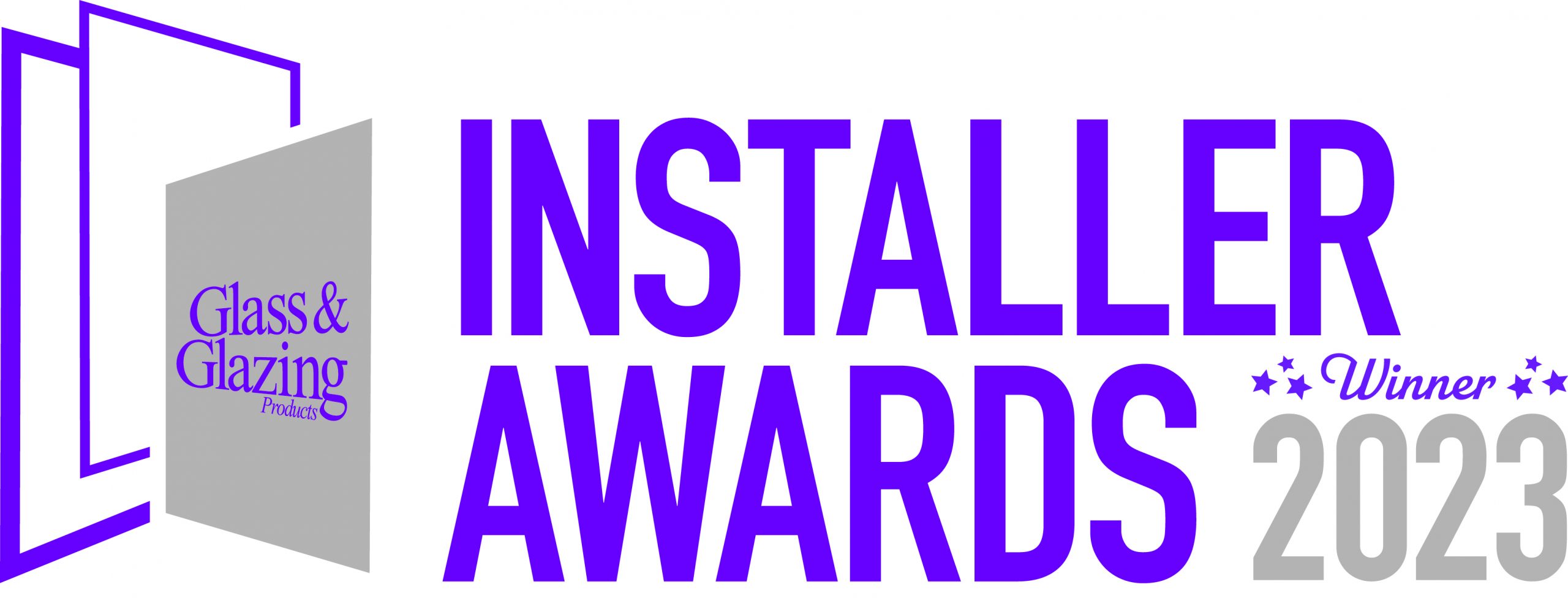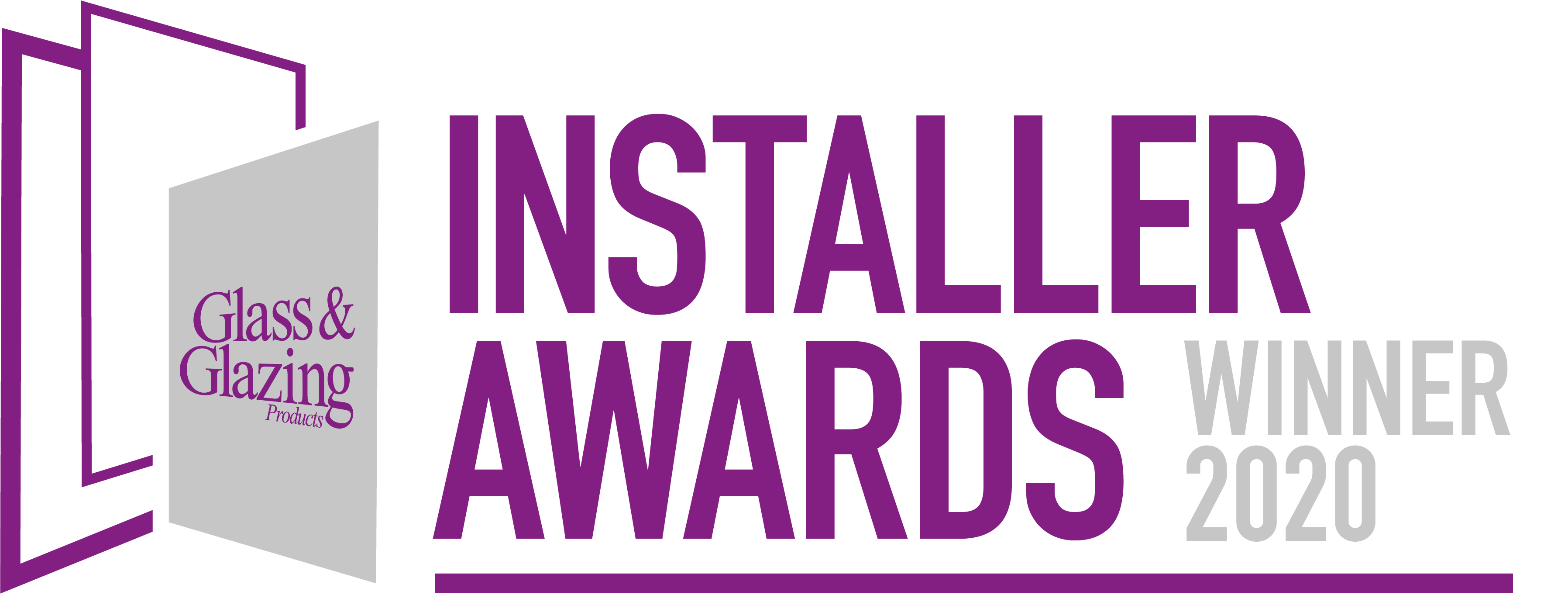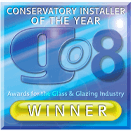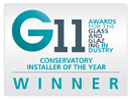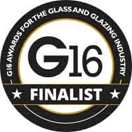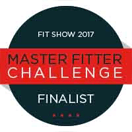Can a Conservatory Be Energy Efficient?
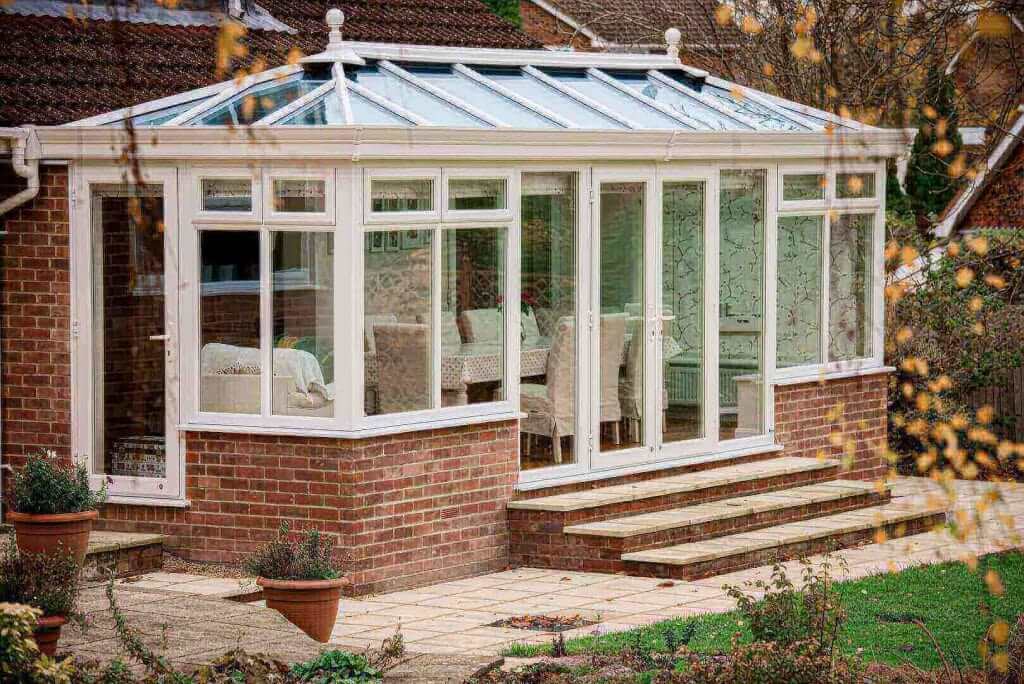
When it comes to home improvements, adding an energy efficient conservatory is an excellent way to expand your living space while keeping energy costs in check. Many homeowners wonder if it’s possible to have a conservatory that doesn’t become a sauna in summer or an icebox in winter. The good news is that with modern materials and design techniques, you can indeed create a conservatory that’s both comfortable and energy-efficient all year-round.
Let’s dive in and discover how you can create a comfortable, eco-friendly extension to your home.
The Importance of Energy Efficiency in Conservatories
Conservatories have long been popular additions to UK homes, offering a bright and airy space to relax and enjoy views of the garden. However, traditional conservatories often struggle with temperature regulation, leading to high energy bills and limited use throughout the year.
An energy-efficient conservatory design addresses these issues, providing numerous benefits including:
- Reduced energy consumption and lower utility bills
- Improved comfort levels in all seasons
- Extended usability of the space throughout the year
- Increased property value
- Reduced carbon footprint
By investing in an energy-efficient conservatory, you’ll create a versatile living space that’s comfortable and cost-effective to maintain.
Key Factors in Creating an Energy Efficient Conservatory
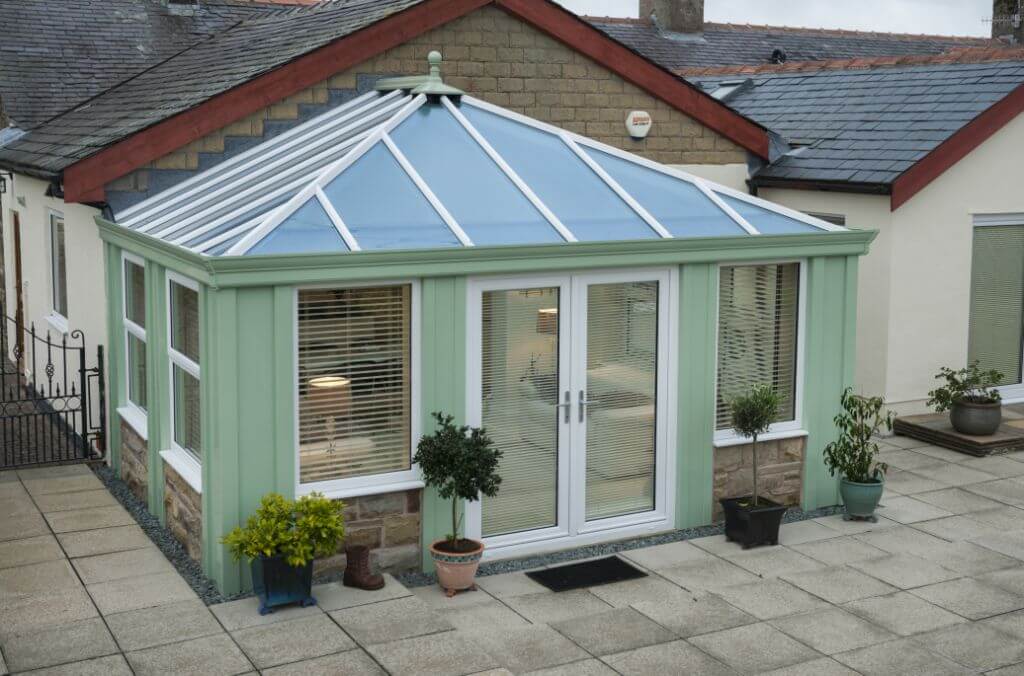
Conservatory Roof Design
The roof of your conservatory plays a crucial role in its overall energy efficiency. Traditional polycarbonate or single-glazed glass roofs often lead to poor insulation and temperature control. However, modern alternatives can significantly improve your conservatory’s thermal performance:
- Solid Roof Systems: These provide excellent insulation and can be fitted with skylights for natural light.
- Tiled Roof Systems: Offering a more traditional look, tiled roofs provide superior insulation and sound dampening.
- Double or Triple Glazed Glass Roofs: These offer improved insulation compared to single glazing while still allowing plenty of natural light.
In-Depth Look at Conservatory Roof Options
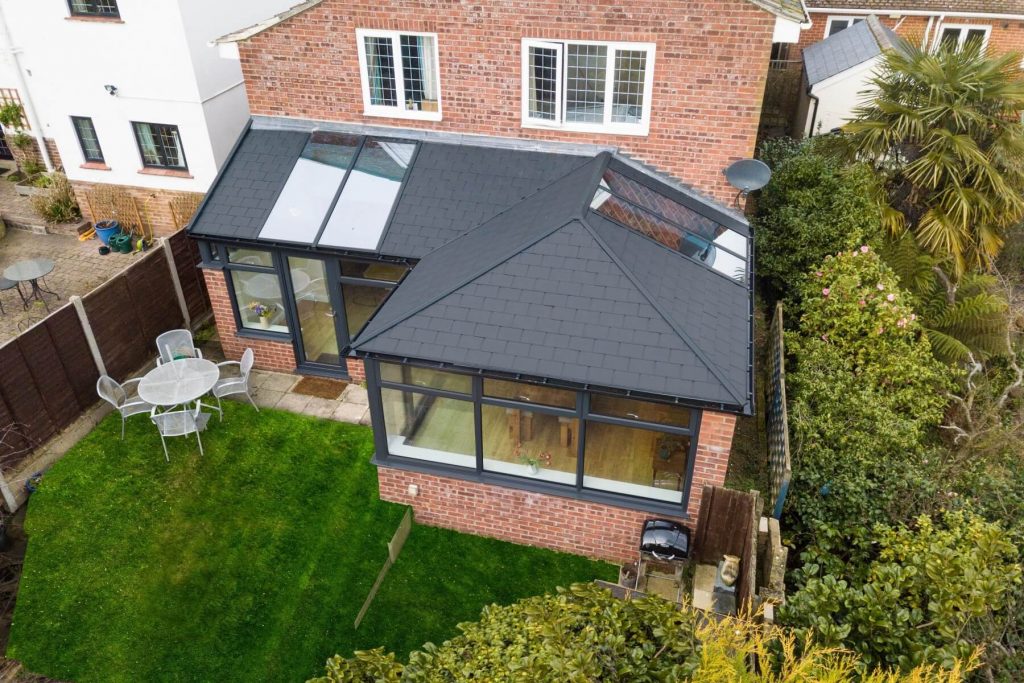
The roof of your conservatory is perhaps the most critical element when it comes to energy efficiency. Let’s explore the main options in more detail:
Glass Roofs
Glass roofs are a popular choice for conservatories, offering a bright, airy feel and unobstructed views of the sky. However, not all glass roofs are created equal when it comes to energy efficiency:
Double Glazed Glass Roofs
These offer significantly better insulation than single glazing. The air (or inert gas) trapped between the two panes acts as an insulator, reducing heat transfer.
Triple Glazed Glass Roofs
These provide even better insulation than double glazing, with an additional pane of glass and air/gas layer. They’re particularly beneficial in colder climates.
Self-Cleaning Glass
This special coating breaks down dirt and allows rain to wash it away, maintaining the roof’s clarity and efficiency.
Solar Control Glass
This type of glass has a special coating that reflects a significant portion of the sun’s heat, helping to keep your conservatory cooler in summer.
While glass roofs allow for maximum natural light, they can sometimes lead to overheating in summer and heat loss in winter if not properly specified.
Solid Roofs
Solid roofs have gained popularity in recent years due to their superior insulation properties:
- Insulated Panels: These are typically made from a lightweight frame with insulation sandwiched between exterior and interior boards. They offer excellent thermal efficiency.
- Hybrid Systems: These combine solid panels with glazed sections, allowing you to balance insulation with natural light.
- Plastered Ceilings: Many solid roof systems allow for a plastered ceiling, creating a seamless look between the conservatory and the rest of your home.
- Roof Lanterns: These can be incorporated into solid roofs to allow natural light while maintaining overall good insulation.
Solid roofs can dramatically improve the energy efficiency of your conservatory, making it usable year-round. However, they do reduce the amount of natural light compared to glass roofs.
Tiled Roofs
Tiled roofs offer a more traditional aesthetic while providing excellent insulation:
Lightweight Tiles
These are designed specifically for conservatory use, offering the look of traditional tiles without putting too much stress on the conservatory structure.
Synthetic Slate
This material offers the appearance of natural slate but is lighter and often more durable
Integrated Insulation
Tiled roof systems typically include substantial insulation layers, offering excellent thermal performance.
Velux Windows
These can be incorporated into tiled roofs to allow natural light while maintaining the traditional roof appearance.
Tiled roofs can transform the look of your conservatory, making it appear more like a permanent extension. They offer excellent energy efficiency but, like solid roofs, reduce natural light compared to glass options.
Choosing the Right Roof for Your Energy Efficient Conservatory
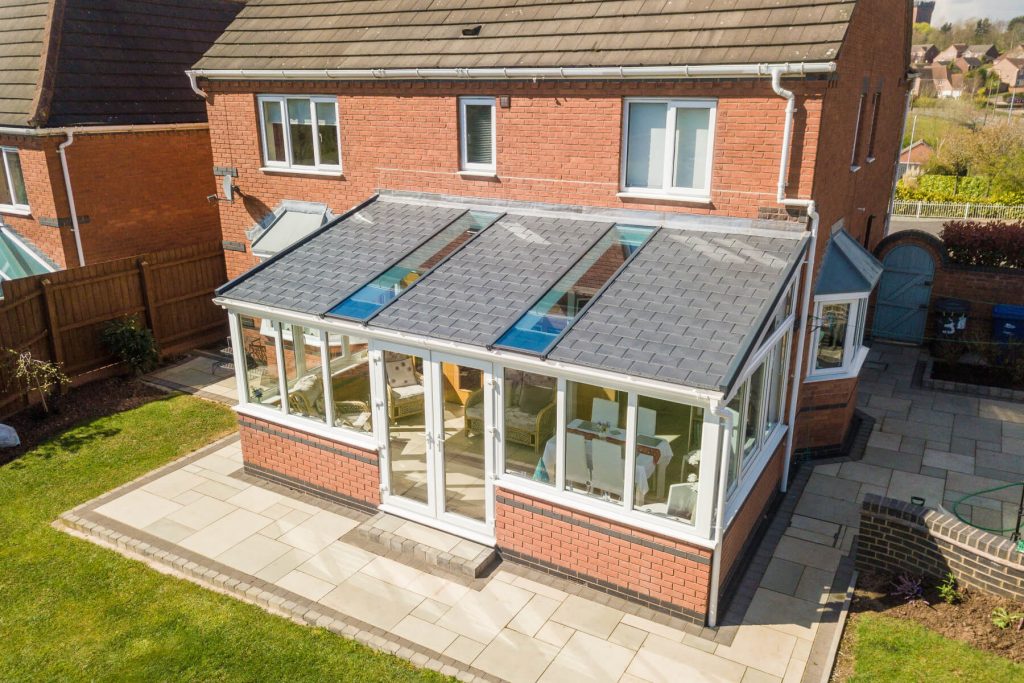
When selecting a roof for your energy efficient conservatory, consider the following factors:
- Climate: In cooler climates, solid or tiled roofs may be more beneficial. In moderate climates, high-performance glass roofs could be ideal.
- Usage: If you plan to use the conservatory year-round, prioritise insulation with solid or tiled roofs.
- Existing Structure: Ensure your conservatory can support the weight of your chosen roof system.
- Natural Light: If maximising natural light is crucial, consider a glass roof or a hybrid system.
- Aesthetics: Choose a roof that complements your home’s architectural style.
- Budget: While all these options can improve energy efficiency, costs can vary significantly.
By carefully considering these roof options and your specific needs, you can significantly enhance the energy efficiency of your conservatory, creating a comfortable space that can be enjoyed throughout the year.
Energy-Saving Tips for Existing Conservatories
If you have an existing conservatory that’s not as energy efficient as you’d like, there are several steps you can take to improve its performance.
Upgrade Your Glazing
Replacing old, single-glazed windows with modern double or triple glazing can significantly improve insulation. Consider:
- Retrofitting existing frames with new, energy-efficient glass units
- Installing secondary glazing as a cost-effective alternative
- Adding Low-E films to existing windows to improve their insulating properties
Improve Insulation
Enhancing the insulation in your conservatory can make a big difference. Try:
- Adding insulation to solid walls and roofs
- Installing insulated blinds or curtains
- Using draught excluders around doors and windows
The Future of Energy-Efficient Conservatories
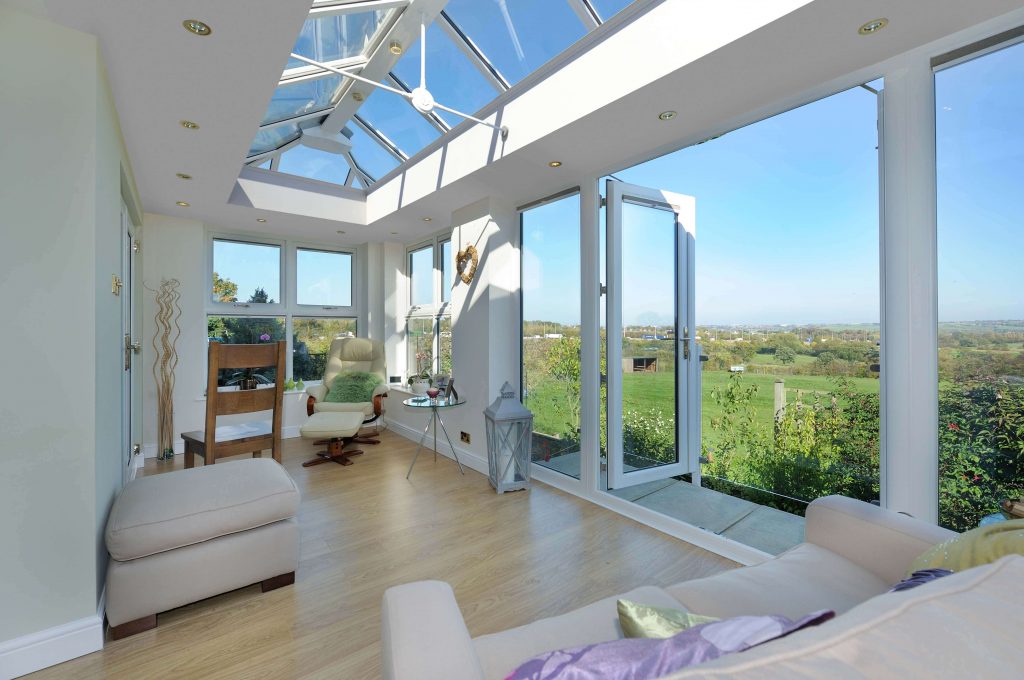
As technology advances, we can expect to see even more innovations in sustainable conservatory design. Some exciting developments on the horizon include:
- Smart glass that can change its opacity to control solar gain
- Integrated photovoltaic cells in conservatory roofs for on-site energy generation
- Advanced materials with superior insulating properties
- AI-powered climate control systems for optimal energy efficiency
These innovations promise to make future conservatories even more energy-efficient and comfortable.
Conclusion: Embracing Energy Efficiency in Your Conservatory
Creating an energy-efficient conservatory is not only possible but increasingly essential in today’s eco-conscious world. By focusing on key aspects, you can design a conservatory that’s comfortable year-round and kind to your energy bills.
Remember these key points:
- Choose high-performance glazing to manage heat gain and loss
- Invest in proper insulation for walls, roof, and floor
- Choose the best roof system to match your needs
- For existing conservatories, focus on upgrades that offer the best return on investment
By embracing these principles, you can create a beautiful, functional, and energy-efficient space that enhances your home and lifestyle.
Whether you’re planning a new conservatory or upgrading an existing one, prioritising energy efficiency will ensure your investment pays off in comfort, savings, and environmental benefits for years to come.
For expert advice on designing and installing an energy-efficient conservatory or a new conservatory roof, don’t hesitate to contact Sherborne Windows. Our team of specialists can guide you through the process, helping you create the perfect energy-efficient addition to your home.







